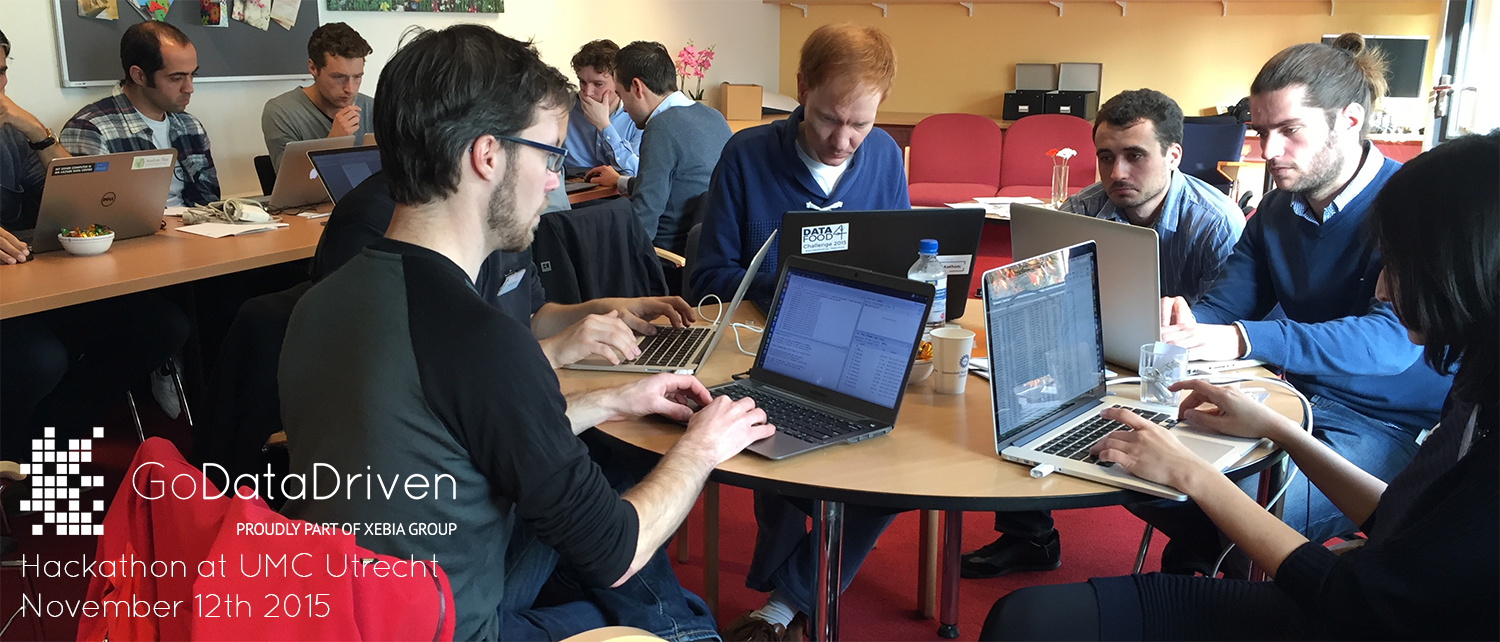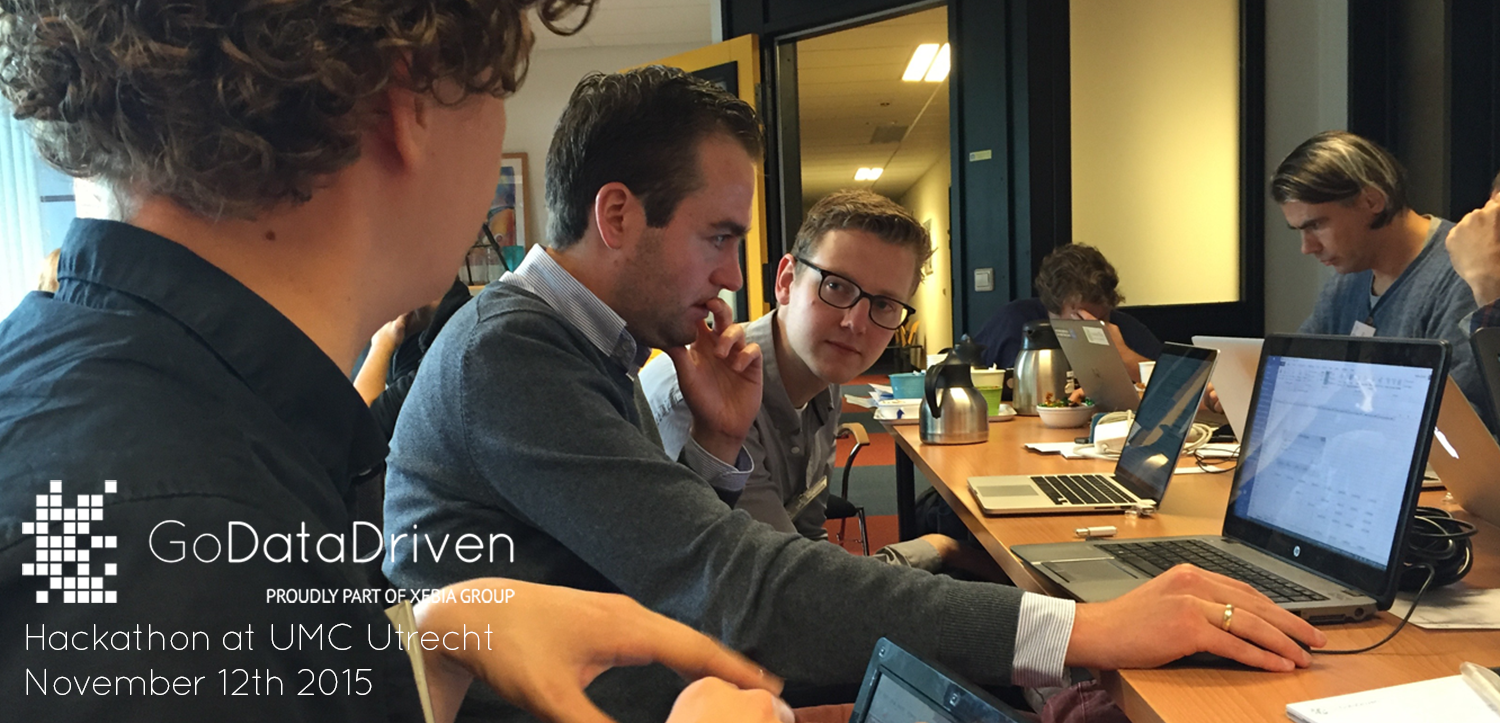On November 12th, UMC Utrecht and GoDataDriven organized a hackathon at UMC Utrecht, which lead to some very interesting results. A group of over 30 enthusiastic data scientists gathered to work on a rich set of data from both the hospital itself as on external data sources. At the end of the day, the results were presented to the management of the psychiatry department of the hospital.
You can view the video report of the day below:
After an interesting tour of the psychiatry department and an introduction by Karin Hagoort, project manager Psynet and Big Data Psychiatry, the participants formed three groups to work on three different data sets.
The data scientists applied their skills to classify texts, predict certain behavior and find correlations between patient’s behaviour or between the information that parents provided of their children and the observations of the treating doctors.
Insights from hackathon at UMC Utrecht
Due to the sensitivity of the data sets, we are unable to share the specific results, however, we do want to share some general insights from the hackathon.
The impact of nature in the proximity
One of the most interesting insights came from the combination of data from UMC Utrecht with external geographical data. From the analysis of this combination the conclusion could be drawn that there seems to be a correlation between the proximity to nature (trees, water) and the duration of a stay at the Psychiatry Unit. People who live near nature seems to stay shorter at the Psychiatry Unit than people who live further away from nature.
Classifying text to understand aggression

One of the groups classified texts to see what are the indicators of aggression, by looking at specific words that could be retrieved from files and observations. Furthermore, these data were plotted against the age of a patient.
The words could also be used to point at specific peak times for aggression. Breakfast, lunch, dinner and times that medicines are being distributed were the times that see a peak in aggression. Weekends saw the least incidents.
Analyzing interviews
Data from interviews with patients were used to develop understanding of words that are seen as limiting factors for patients. Finally, also correlations were researched between what parents say about their children and what the doctors report on intake.
Presentation of the results

At the end of the day, the data scientists had the opportunity to present their findings to the management of the psychiatry department of UMC Utrecht. The management experienced the presentations as insightful and they will use the results from the hackathon to further research how they can improve the patient experience and treatments.
Interested in the organization of a hackathon for your organization? Read more about our services or contact us directly.
PS: We are hiring!




